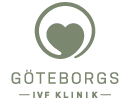Prenatal screening with NIPT – Non-Invasive Prenatal Testing
Prenatal screening with NIPT – Non-Invasive Prenatal Testing
NIPT is one of the newest and safest methods within prenatal screening. It is essentially a blood test taken from the mother, which means it is non-invasive and does not increase risks for the pregnancy. The purpose is to assess the likelihood of chromosomal abnormalities, specifically Trisomy 21 (Down syndrome), Trisomy 18 (Edwards syndrome) and Trisomy 13 (Patau syndrome). You can also choose to receive information about sex chromosome abnormalities and/or the 22q11.2 deletion syndrome.
The blood sample is drawn from the pregnant woman’s arm and can be taken from week 10+0 of pregnancy up to term. We generally recommend testing relatively early so you have time to process the information and—if an increased likelihood is indicated—time to consider further diagnostic testing, should you wish.
If the test shows no signs of DNA abnormalities, the likelihood of defects and genetic disease is reduced, which many expectant parents find reassuring.
NIPT is offered within Sweden’s regional healthcare systems, but the indications for publicly funded testing vary depending on your region. Your routine care at the antenatal clinic (MVC) is not affected whether or not you choose to do NIPT.
How does NIPT work?
During pregnancy, small fragments of cell-free DNA (cfDNA) from the pregnancy (originating from the placenta) circulate in the mother’s blood. When the NIPT blood sample is taken, these cfDNA fragments are captured and analysed.
How is the NIPT test performed?
NIPT is done with a quick blood draw from a vein in the arm and is completely safe for you and your pregnancy/baby. If you wish to take the test, contact us at info@goteborgsivfklinik with your phone number. We will call you to book an appointment with one of our gynaecologists for more information and an ultrasound. The ultrasound is vaginal up to and including week 12+0, and abdominal thereafter. Its purpose is to confirm viability, number of fetuses and gestational age. If the ultrasound shows that you have reached week 10+0 or later, the blood sample will be taken the same day.
We send the sample to Life Genomics AB, located right next to our clinic in Gothenburg. Life Genomics is one of the largest companies performing these tests and has many years of experience.
Results usually arrive 7–12 days after your blood draw. In a small proportion of cases (~3%), the sample cannot be analysed (due to too low cfDNA fraction); if that happens, the test will be repeated at no extra cost.
Read more about NIPT at Lifegenomics: https://nipt.se/
If your pregnancy is via IVF or egg donation
Gestational age is determined by the embryo transfer date and the embryo’s age (number of culture days before transfer). If you became pregnant via IVF or egg donation, please bring documentation from your embryo transfer or from the pregnancy scan at your clinic—the same document you should present at your first or second antenatal visit (MVC). In egg donation, you may assume the donor is under 35 years of age; indication for NIPT based on maternal age therefore does not apply.
How do you interpret the NIPT result?
NIPT is a screening test for the most common chromosomal abnormalities in the fetus. It categorises the risk as low or high; it does not provide a definitive yes/no diagnosis. If NIPT indicates a high probability for an abnormality, it is important to confirm with chorionic villus sampling (CVS) or amniocentesis to obtain a definitive result.
Who can take NIPT?
NIPT is available to all pregnant women except in the following situations:
Multiple pregnancy: twins (testing limited to trisomy 13, 18, 21 and fetal sex); triplets are not eligible.
Known chromosomal abnormality in the pregnant woman.
Blood transfusion, stem-cell therapy, radiation, immunotherapy or organ transplantation within the last 3 months.
Gestational age earlier than week 10+0.
If you have questions or would like to book, you are warmly welcome to contact Göteborgs IVF Klinik.
